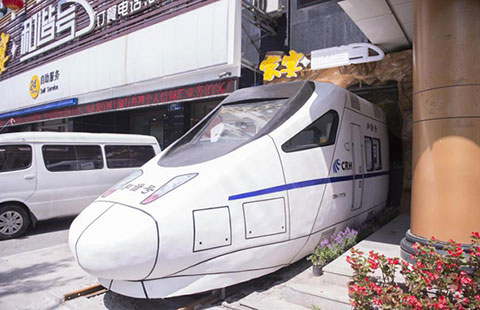Chinese space station to benefit world
(Xinhua) Updated: 2012-06-17 08:22BEIJING - The successful launch of China's fourth manned spaceship paves the way for a future space station, which might subsequently benefits the world in space exploration.
Shenzhou IX spacecraft, carrying two males and one female, will break new grounds for the country's space missions.
All the tests and experiments to be done in this mission will make the country well-prepared for building a space station in near future.
Two docking tests, one automated and one manual, are critical to operations for the scheduled space station to receive supplies and accommodate astronauts.
The Shenzhou IX crew will have the longest stay in space, which helps test both the spacecraft and the orbiting module Tiangong-1 for functions and comfort for longer human stay.
More human interest might be added in this mission with the first Chinese woman entering space. A century ago many of them were illiterate, binding their feet small enough to please men and sharing their polygamous husbands with other women.
So far human knowledge on outer space remains limited. Pooling more resources and talents in the cause will no doubt broaden the horizon.
Chinese have contributed several most important inventions to human civilizations, and are now working in aspects of space exploration.
Key scientists of the Chinese manned space mission commented that China presented a more efficient and economic way compared with Russian and US space explorations. While learning a lot from foreign experience, China is willing to share its experience with the rest of the world.
China is the third to establish a mechanism for selecting and training astronauts, next to the United States and Russia and the country will offer access to astronauts' training to other countries, especially developing ones.
After the service of the International Space Station is designated to cease in 2020 or 2028, a new space station might be needed by the whole world. China plans to set up such a space station by 2020 and open it to global scientists.
- Introduction to Tianjin harsh for some
- Questions remain as fires put out after Tianjin blasts
- China to inspect dangerous chemicals after Tianjin blasts
- China investigates Tianjin blasts, experts focus on chemicals
- Harmful pollutants found near Tianjin site; outlets blocked
- Tragedy to hurt Tianjin economy
- Obstruction of probes to be punished
- China to intensify public security patrols
- Sina launches think tank platform
- Chinese leaders urge all-out efforts to save injured in Tianjin blast







